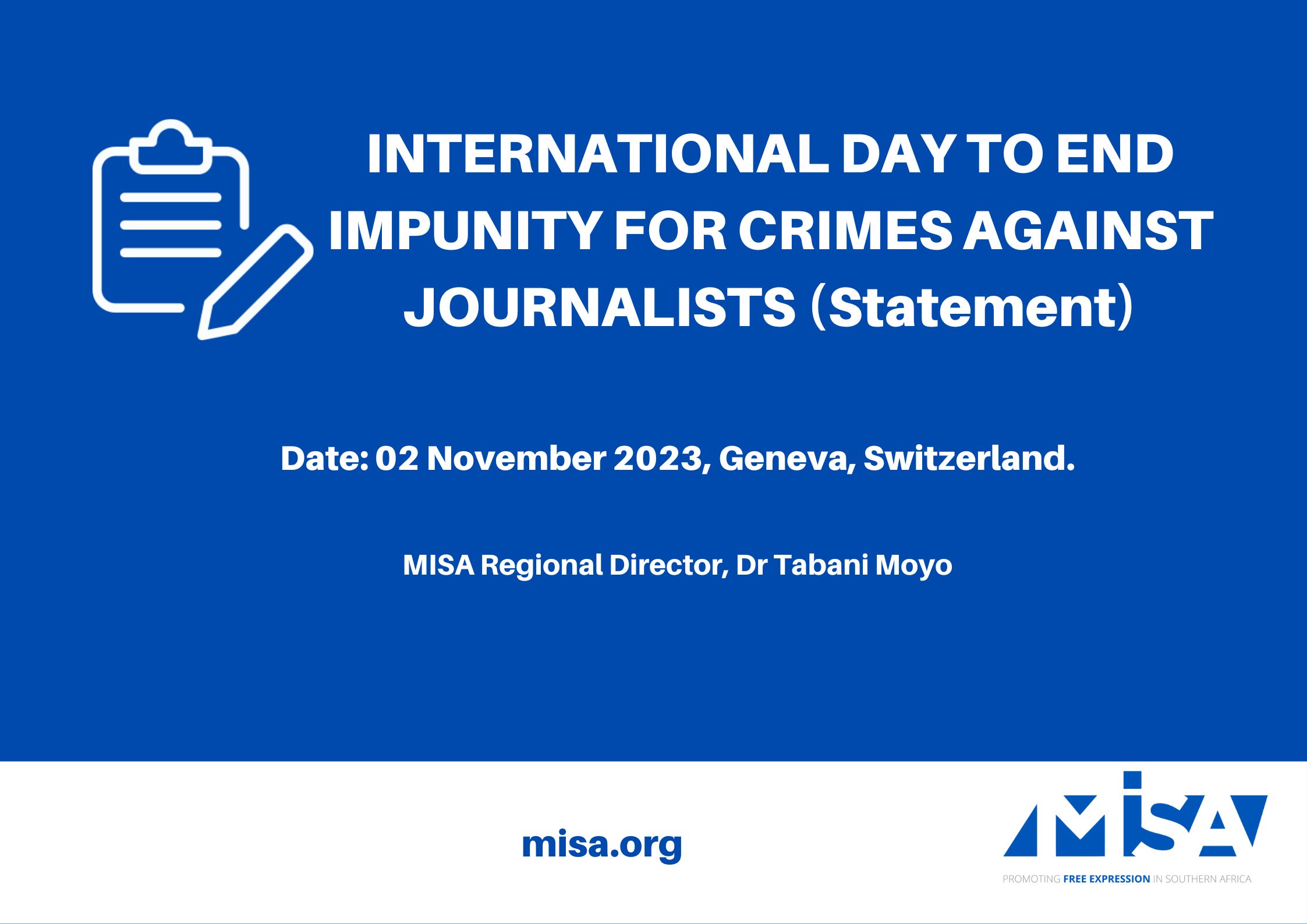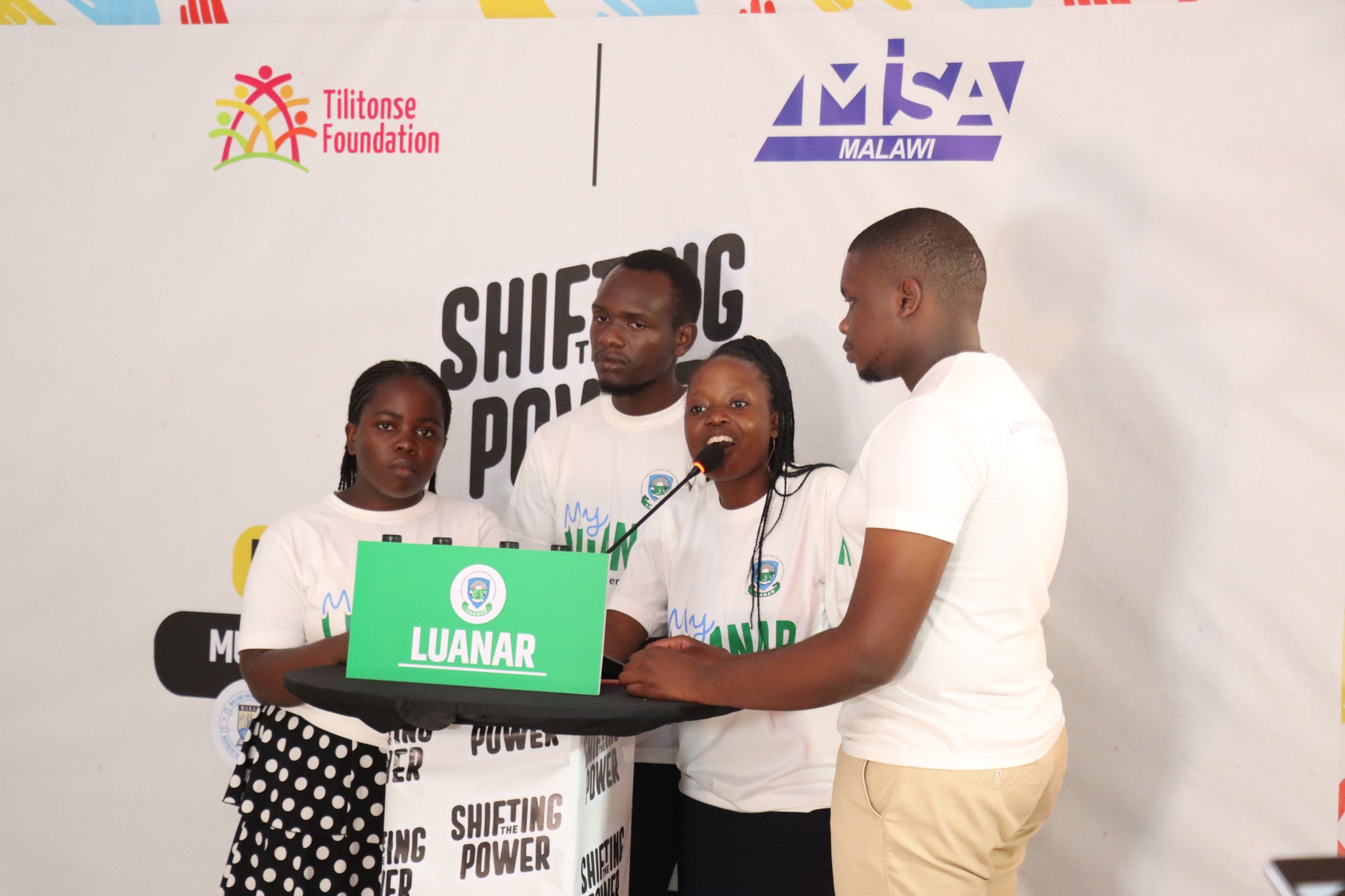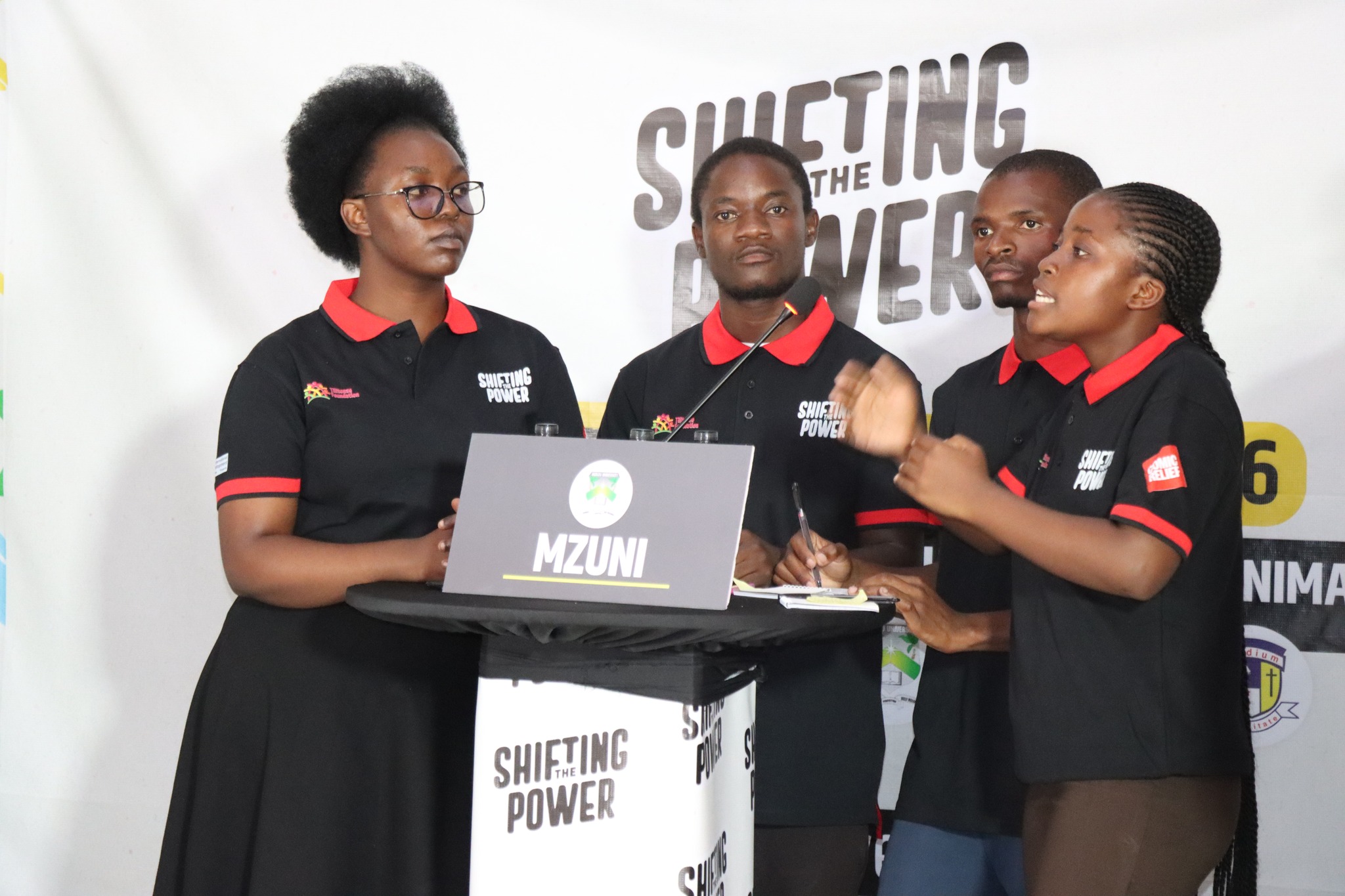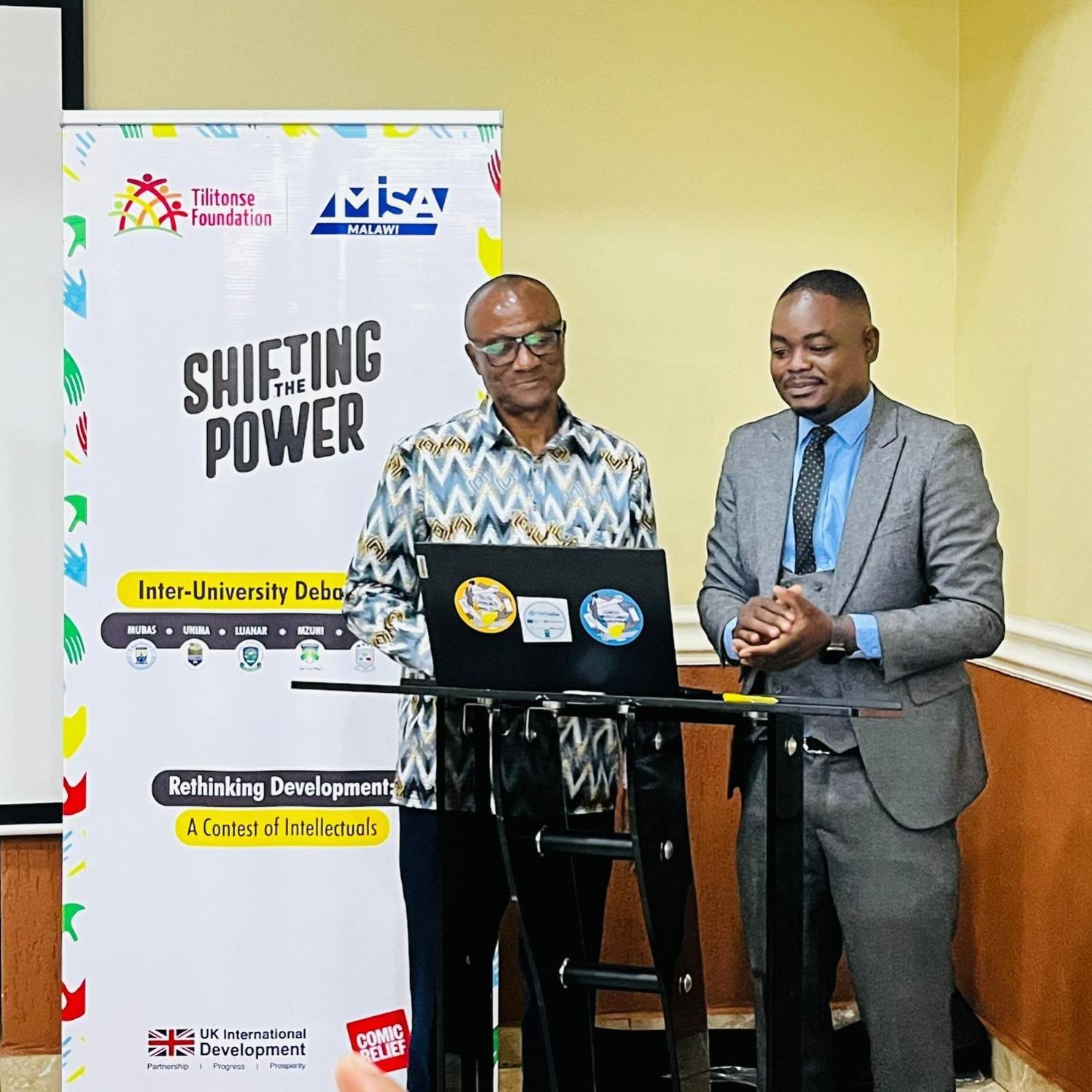Presentation by MISA Regional Director, Dr Tabani Moyo, at the United Nations Human Rights Office of the High Commission Panel Discussion on Legal Threats to Safety of Journalists in commemoration of International Day to End Impunity for Crimes against Journalists.
Date: 02 November 2023, Geneva, Switzerland.
- Weaponisation of the law
The past few years have seen the enactment of laws that have an adverse effect on freedom of expression and of the media across Southern Africa.
Southern African countries have claimed that the civil society laws they have introduced are meant to ensure these nations comply with the Financial Action Task Force (FATF) recommendations.
The FATF recommendations, particularly Recommendation 8, which focuses on NGOs and the potential use of NGOs as vehicles for money laundering and terrorism financing, have become an albatross around the necks of civil society in Southern Africa.
These include the NGO laws in Malawi and Tanzania, the Social Communications Law in Mozambique and the Criminal Law (Codification and Reform) Act (Patriot Act) in Zimbabwe. This is in addition to the proposed NGO law in Angola and the PVO Amendment Bill in Zimbabwe.
In addition, there was a flurry by Southern African nations to enact cyber security laws, which, instead of protecting users online, were meant to stifle freedom of expression online.
These laws criminalised the publication of falsehoods regardless of the existence of freedom of expression provisions and (court) rulings that pointed out that criminalisation of publication of falsehoods has a chilling effect on freedom of expression.
These cyber security laws have criminalised defamation. This is regardless of soft law and the African Commission on Human and Peoples’ Rights (ACHPR) recommendations that defamation should not be criminalised.
The cyber security laws have also entrenched surveillance. Just recently, two journalists from Botswana were on 20 July 2023 arrested and had their gadgets confiscated. The security services wanted to go through their devices to find out who they were engaging with as well as their news sources.
A report by Citizen Lab in December 2020 revealed that at least three Southern African countries – Botswana, Zambia and Zimbabwe – had acquired surveillance equipment from Circles, an Israeli firm.
Our approach as MISA is that where there is a need to deploy surveillance equipment, it should be transparent, there should be judicial oversight, and it should be based on a human rights-based approach.
- Safety of journalists
Southern Africa has been a mixed bag over the past years, with countries in the region, both improving and backsliding in terms of the safety of journalists.
Overall, there is what can be described as democratic backsliding.
For example, in 2022, we celebrated that no journalist had been detained or harassed during their duties in Lesotho, even though this was an election season.
However, five months into the year, a broadcaster was shot and killed as he left his place of work. Several people have been arrested for the crime, but even as this was happening, some journalists continued to receive threats online that they would meet the same fate as Ralikonelo Joki, the slain journalist.
More than three years after he went missing, Ibrahimo Mbaruco, the Mozambican journalist, is yet to be accounted for. In Tanzania, Azory Gwanda, is yet to be accounted for more than six years after he went missing and has now been declared presumably dead.
Also in Tanzania, on March 28, 2021, Blandina Sembu, ITV and Radio One (local stations) presenter, was found dead and her body thrown by the roadside. Her death remains unresolved.
- Media laws
Civic space has generally been shrinking in Southern Africa, with attacks on journalists and civil society becoming less overt and more subtle. This is particularly more so through online attacks on journalists.
While traditionally, we campaigned for media law reform, there is need for a more nuanced approach in terms of the reforms we need and how these address emerging issues.
There is need to put in place institutional safety mechanisms for the safety of journalists in each country. For example, in Zimbabwe, albeit informally, we devised the Police-Media Action Plan.
This, (Action Plan) came after realisation that the police were by far the most responsible institution for attacks on journalists. Police and the media across the country engaged on how the safety of journalists could be improved, which helped ease mistrust between journalists and the police.
As a result, we have recorded very few attacks on journalists, even though this was an election year.
In Zimbabwe and Lesotho, we led the process of mobilising the media to sign a pledge to report on elections ethically and professionally, which was endorsed by multiple stakeholders and contributed to a low number of attacks against journalists while covering elections.
There is need for us, as civil society, to advocate for the domestication of the UN Plan of Action on the Safety of Journalists. This will go a long way in ensuring that legal provisions promote journalists’ safety.
There is also a need to domesticate the ACHPR Resolution 522 on the Protection of Women Against Digital Violence in Africa.
This is particularly important where it concerns the resolutions to undertake measures to safeguard women journalists from digital violence, including gender-sensitive media literacy and digital security training.
There is also need to repeal vague and overly broad laws on surveillance as they contribute to the existing vulnerability of female journalists.
Recommendations
- Domesticate the United Nations Plan of Action on the Safety of Journalists so that the safety of journalists is guaranteed by law.
- Ensure that regional and international best practices inform the cybersecurity regulation.
- Investigate and hold to account the perpetrators of attacks on journalists.
- Be transparent in how surveillance is used, and this should always be with judicial oversight.
- Decriminalise expression and media freedom which is under attack from the weaponisation of anti-terrorism laws.
Dr Moyo participated in the panel discussion virtually.









